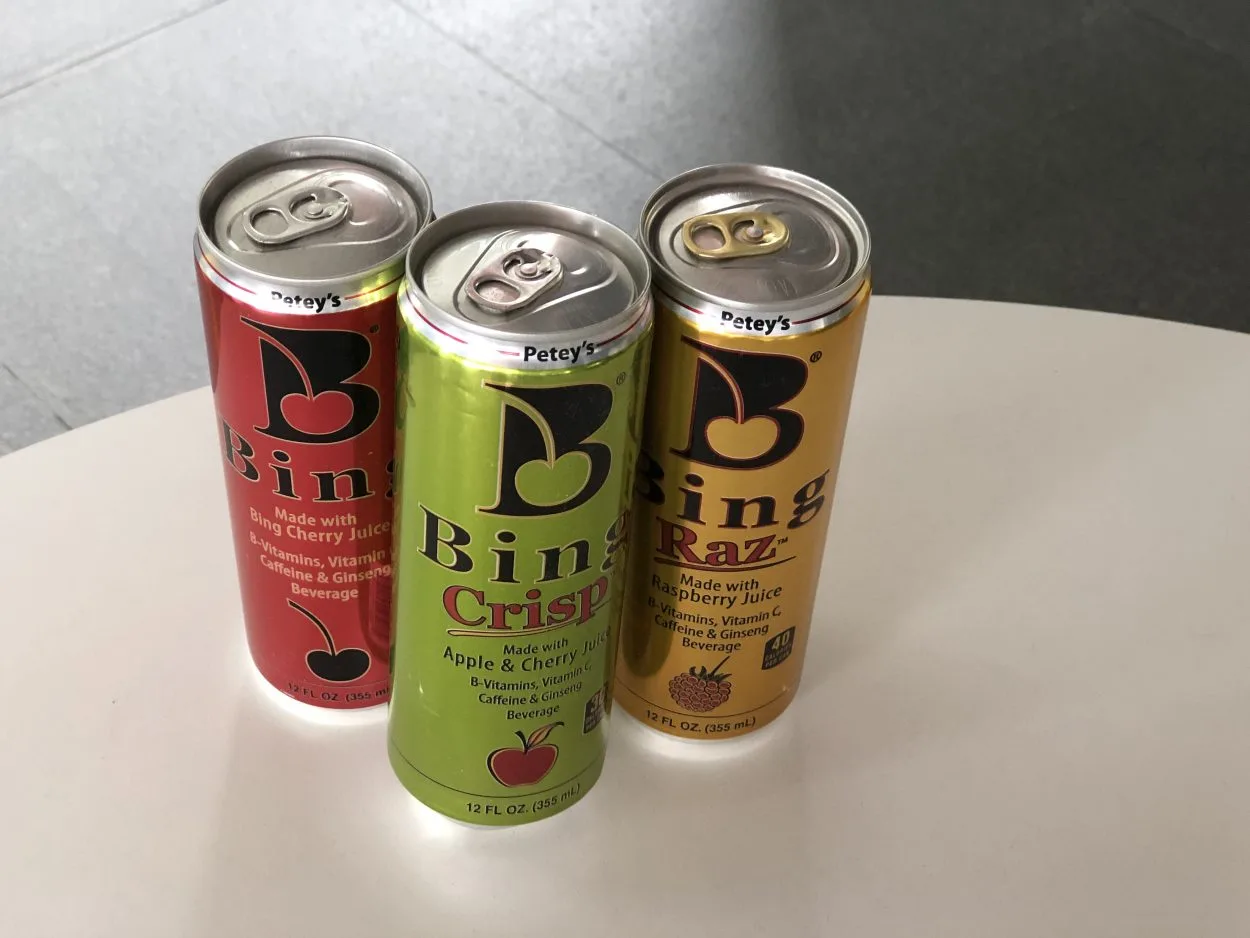
As the demand for energy drinks is increasing, we see the energy drink industry expanding on a large scale. Thus, nowadays it’s becoming easier to spot many brands competing in this industry.
Today, we are going to discuss one such drink that has been in the spotlight these days.
Bing Energy gets its caffeine from different sources and one of them is guarana. Guarana has the highest concentrations of caffeine.
As a 12 oz Bing can have 120 mg of caffeine and 9 g of sugar, you can drink it every day, keeping it in moderation.
If you want to know more about Bing and what this energy drink is all about, keep on reading.
Let’s get started!
Contents
Nutritional Facts Of Bing
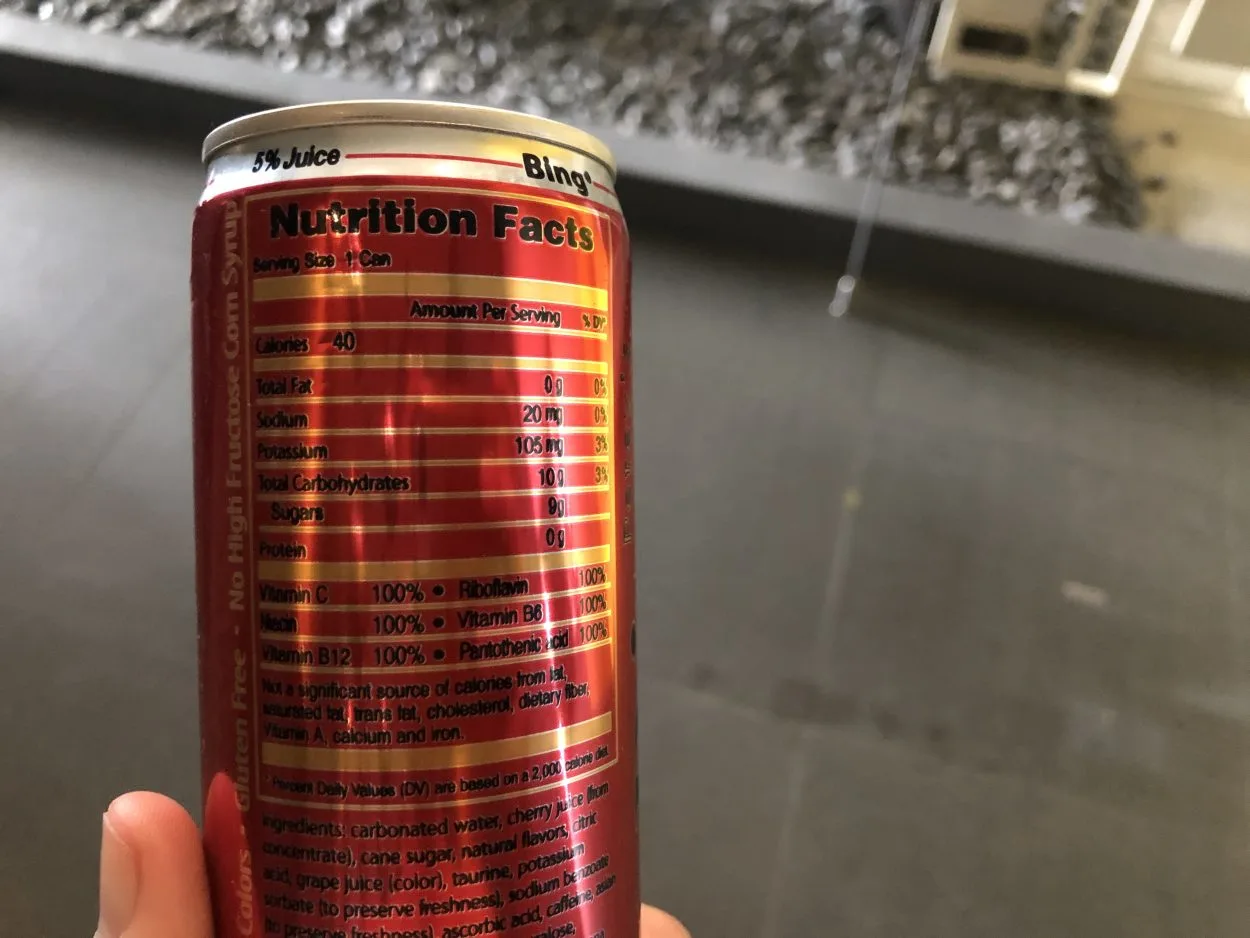
You should always check the nutrition facts of energy drinks because most often you’ll find high doses of sugar and other ingredients which can be bad for you.
Here’s a table containing the nutrition facts of Bing energy drink.
| Content | Daily Value (%DV) |
| Calorie | 40 |
| Fat (0g) | 0% |
| Sodium (5mg) | 0% |
| Carbohydrate (10g) | 4% |
| Protein (0mg) | 0% |
| Potassium (120mg) | 2% |
| Added Sugar (5g) | 9% |
| Vitamin C | 100% |
| Riboflavin | 100% |
| Vitamin B12 | 100% |
| Vitamin B6 | 100% |
| Pantothenic Acid | 100% |
Ingredients In Bing Energy Drink
Ingredients are the most significant part of creating any energy drink, and you should have a look at the list of ingredients because you might be allergic to some of them.
Here’s a list of ingredients that are present in the Bing energy drink:
- Carbonated water.
- Cherry juice ( from concentrate ).
- Cane sugar.
- Natural flavors.
- Citric acid.
- Grape juice (color).
- Taurine.
- Potassium sorbate (to preserve freshness).
- Sodium benzoate ( to preserve freshness).
- Caffeine.
- Asian ginseng.
- Acesulfame potassium.
- Sucralose.
- Niacinamide.
- D-calcium pantothenate.
- Guarana seed.
- Pyridoxine hydrochloride.
- Riboflavin.
- Acai.
- Cyanocobalamin.
- Flax seed.
Caffeine In Bing Energy Drink
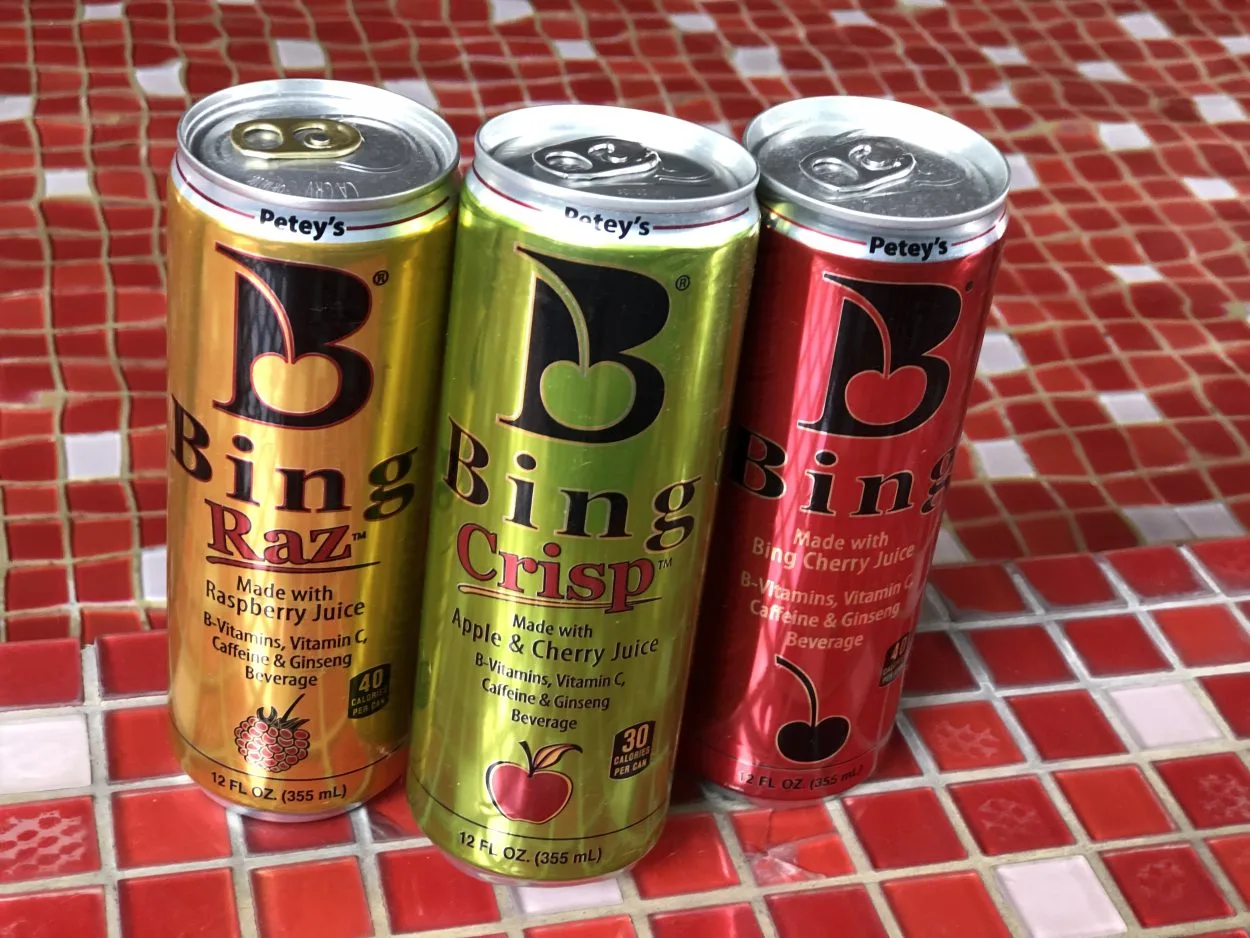
Caffeine is one of the prime ingredients which are used in energy drinks, without it such drinks wouldn’t be called “energy drinks.”
Caffeine is an active ingredient that can be derived from many sources, natural as well as synthetic.
While most commonly the natural caffeine comes from Guarana, synthetic caffeine is produced from urea and chloroacetic acid.
Bing contains many sources of caffeine, two of which are Asian ginseng and guarana. Moreover, a 12 oz can of Bing has 120 mg of caffeine.
You see caffeine is the most crucial ingredient used in energy drinks because it increases mental and physical performance.
You may find those effects of energy drinks charming, but for your information, caffeine is also associated with several health complications.
According to the FDA, a healthy adult should limit their consumption of caffeine to only 400 mg per day.
With respect to that, huge amounts of caffeine can lead to side effects that include:
- Restlessness and shakiness.
- Insomnia.
- Headaches.
- Dizziness.
- Fast heart rate.
- Dehydration.
- Anxiety.
- Dependency.
While 400 mg can be the regular dose for some people, caffeine-sensitive people can experience side effects like:
- racing heartbeat.
- headache.
- jitters.
- nervousness or anxiousness.
- restlessness.
- insomnia.
Furthermore, dependency on caffeine can be the worst thing for you, because it leads you to consume more and more caffeine in order to satisfy the craving.
The moment you fail to satisfy those cravings, you can experience caffeine withdrawal symptoms that include:
- Headaches.
- Tiredness.
- Difficulty concentrating.
- Nausea.
- Muscle pain.
- Irritability.
Whether caffeine source is natural or not, you should always keep its consumption in moderation because caffeine does much worse than dehydration.
Sugar In Bing Energy Drink
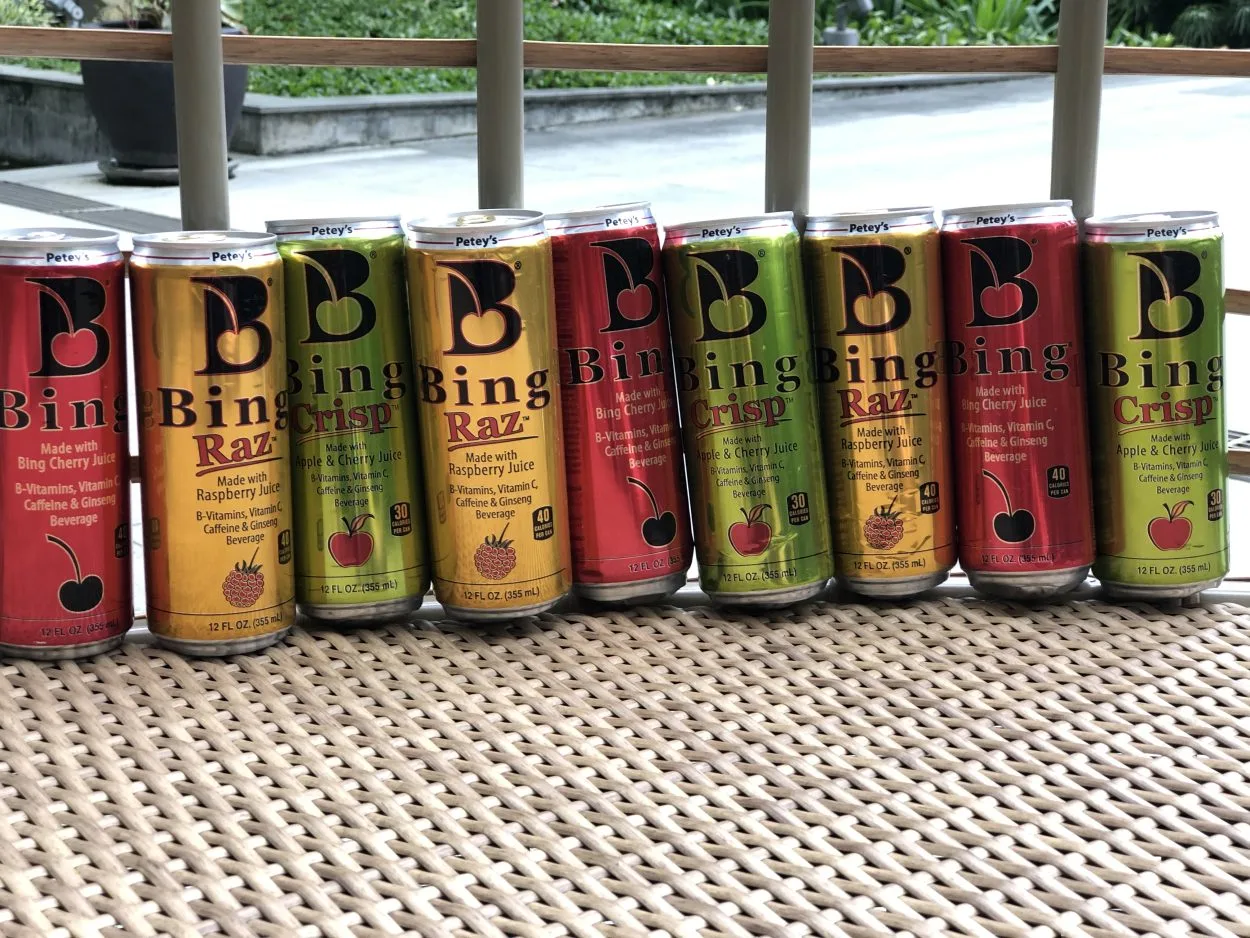
Good thing is that, per 12 oz, Bing energy drink contains only 9 g of sugar which is enough to give you a burst of energy and not too much to give you sugar crashes.
Sugar is added to foods for sweetness, but it’s also used as an energy source. Sugar can provide a significant boost of energy that may only last for some time.
Despite that, it’s added in energy drinks often in huge amounts which wouldn’t bode well for you. Excessive consumption of sugar has been associated with health complications which include:
- Headaches.
- Irritability.
- Fatigue and difficulty concentrating.
- Feeling jittery or anxious.
- Feeling dizzy or shaky
- Hunger.
- Sugar crashes.
- Bloating.
- Higher blood pressure.
- Inflammation.
- Weight gain.
- Diabetes.
- Fatty liver disease.
Sugar is good for you as long as you consume it in moderation. According to the AHA, women should have an intake of 25 g of sugar per day, and men should consume 36 g.
Artificial Sweeteners In Bing
There’re a number of artificial sweeteners, but the most common is Sucralose which is also known as Splenda.
Bing energy drink along with other drinks also uses sucralose in order to add sweetness to the drink which helps in masking the bitterness of certain ingredients.
Sucralose is a harmless sweetener unlike High Fructose Corn Syrup, moreover, sucralose is approved by the FDA for human consumption as well.
The good thing about sucralose is that it doesn’t add any calories which is why it’s used in energy drinks.
Calories In Bing Energy Drink
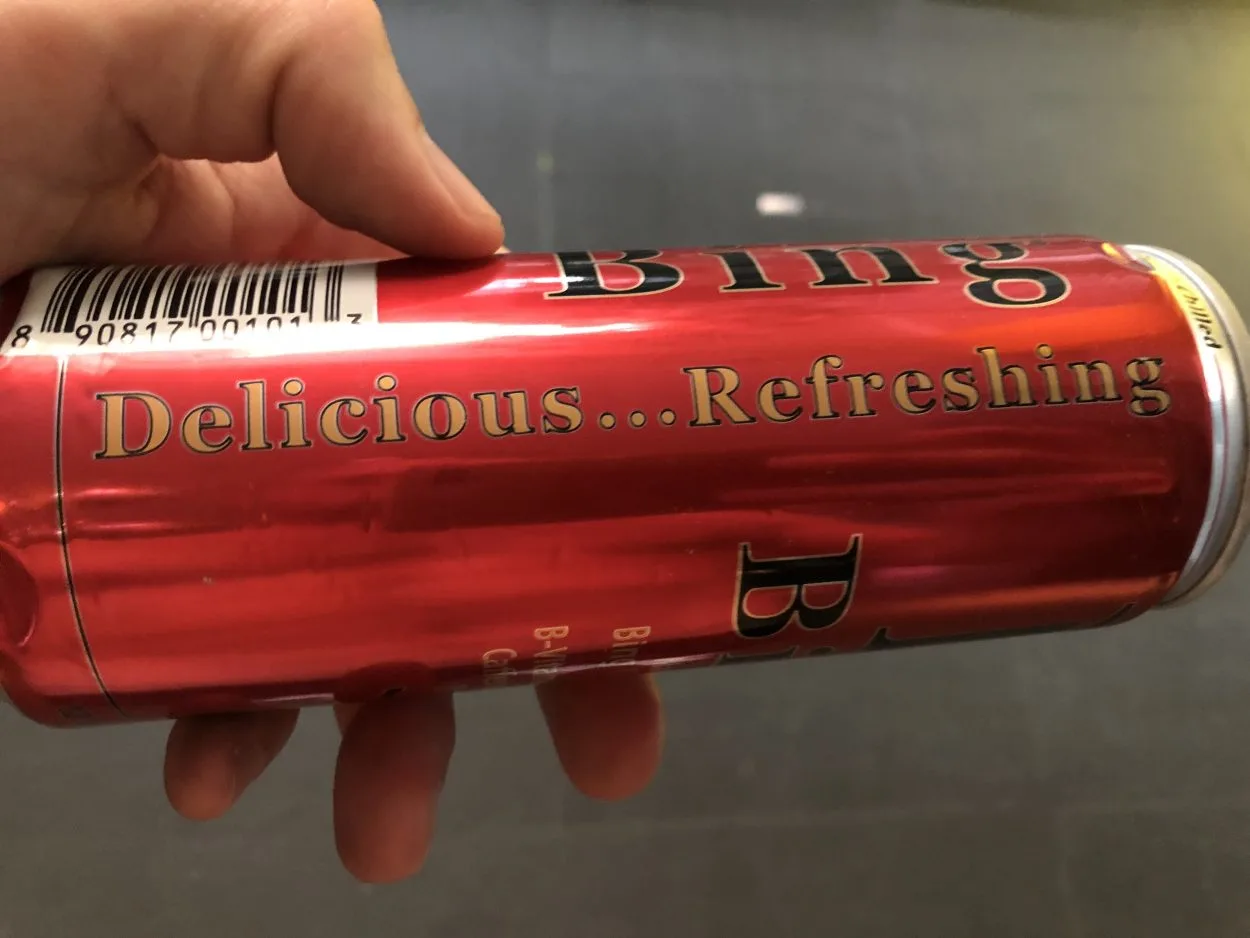
Calories are important for the human body, as it keeps your heart beating and your lungs breathing. It also determines how much energy you have in your body.
However, just like caffeine and sugar, calories shouldn’t be consumed in an immoderate manner as it can lead to weight gain, and eventually obesity which can cause:
- All causes of death (mortality).
- High blood pressure (hypertension).
- Increased risk of type 2 diabetes.
- Coronary heart disease.
- Stroke.
- Gallbladder disease.
- Osteoarthritis (a breakdown of cartilage and bone within a joint).
- Sleep apnea and breathing problems.
- Increased risk of different types of cancer.
- Low quality of life.
- Mental illness may include clinical depression, anxiety, and other mental disorders.
- Body pain and difficulty with physical functioning.
According to research, women should only consume 2000 calories per day and men should have an intake of 2500 calories.
Fortunately, Bing energy drink has only 40 calories per can, considering the size, 40 calories are justifiable.
However, if you’re keeping track of your calories or on a strict calorie diet, I wouldn’t recommend Bing to you. There’re several zero-calorie energy drinks that you can go for instead.
How Much Bing Energy Can You Drink Every Day?
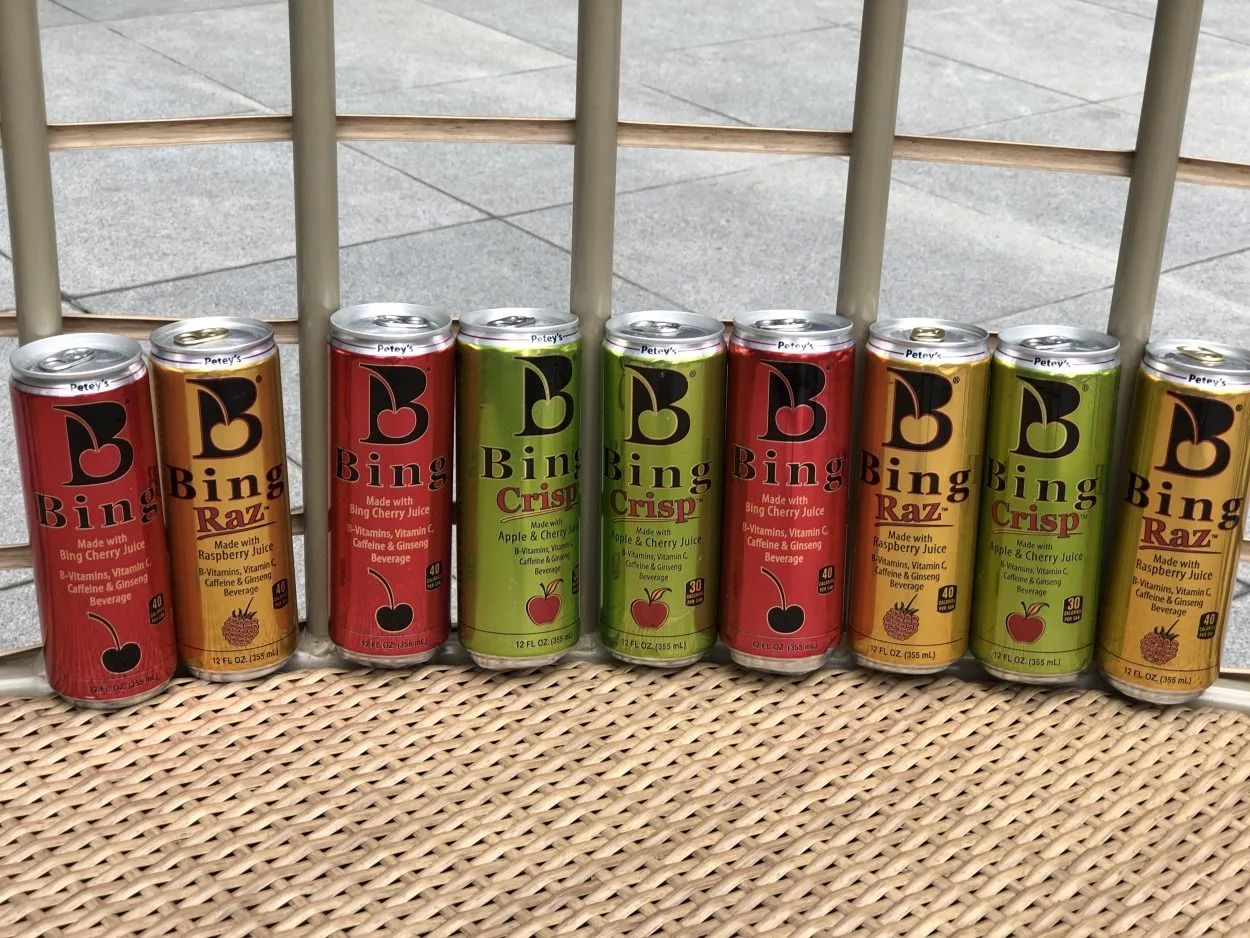
Bing energy contains 120 mg of caffeine per 12 oz of the can with 9 g of sugar and 40 calories. Bing gets caffeine from different sources, two of them are Asian ginseng and guarana which are associated with several health benefits.
However, caffeine remains caffeine, whether it’s natural or not. Thus a normal person can have two cans of Bing every day without experiencing any side effects.
Consumption of energy drinks is increasing every day, people consume these drinks in an immoderate amount that may not bode well for their health.
In fact, research has associated excessive consumption of energy drinks with health complications that include:
- Increase in blood pressure and heart rate.
- It may increase the risk of type 2 diabetes.
- It may damage your teeth.
- It may negatively affect kidney health.
- It may increase high-risk behavior.
- It may lead to caffeine overdose and toxicity.
Thus, you should always be responsible for your energy drink consumption.
Watch this video to know how energy drinks effects you.
Alternatives To Bing Energy Drink
Bing energy drinks may be high in caffeine for some people, therefore you can go for energy drinks that have a moderate dose of caffeine.
Here’s a list of energy drinks with low caffeine:
- Nuun Energy.
- Bai Bubbles Sparkling Antioxidant Infusion.
- RUNA Energy Drinks.
- Hiball Sparkling Energy Water.
- Zevia Energy.
- ZOA Zero Sugar.
Conclusion
- In my opinion, you can drink one can of Bing Energy drink every day if you don’t have any medical condition.
- Bing energy drink contains 120 mg of caffeine per 12 oz can with 9 g of sugar and 40 calories.
- Bing gets its caffeine from various sources, two of which are Asian Ginseng and Guarana.
- Too much caffeine is linked to side effects like insomnia.
- People with caffeine sensitivity can experience side effects like jitters when exposed to even a small dose of caffeine.
- Energy drinks are good for you as long as the consumption is in moderation.
- Bing has only 9 g of sugar per can.
- Excessive sugar has been associated with weight gain which can lead to an increased risk of type 2 diabetes and different types of cancer.
- Only two cans of Bing would suffice for a normal person.
